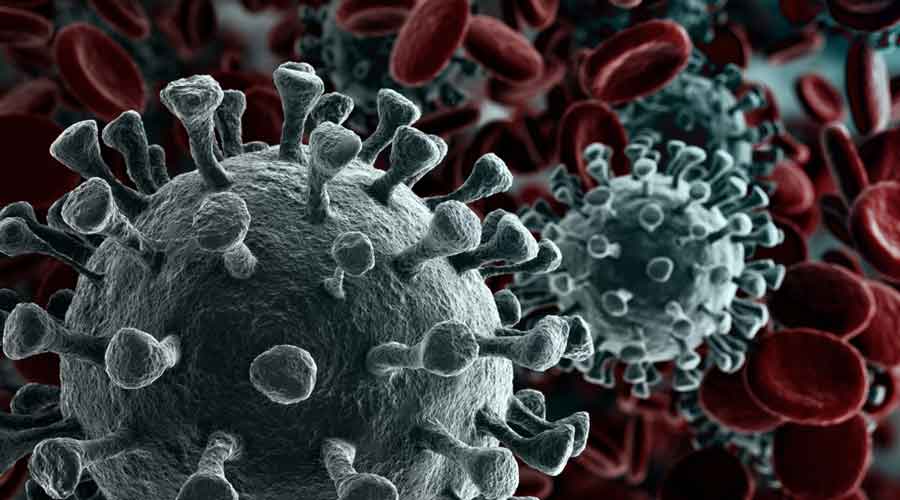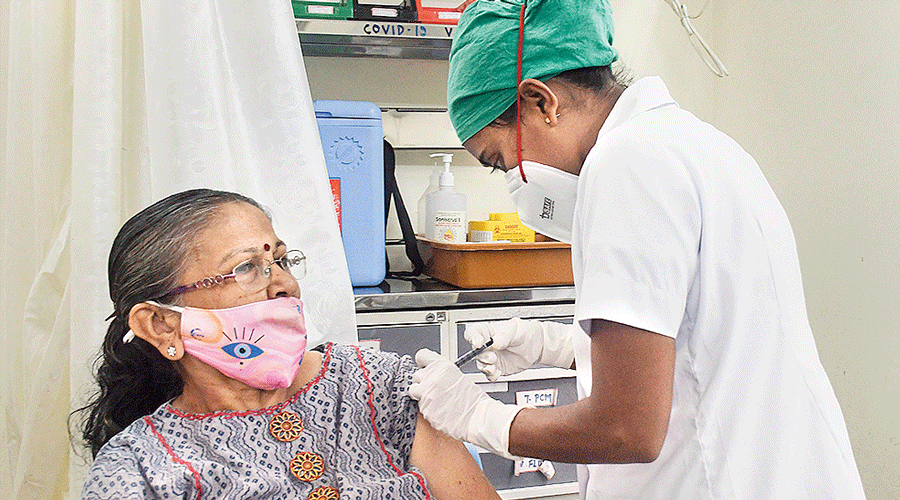Scientists in Calcutta and Kalyani have generated fresh evidence for the idea circulating in medical circles for months that fluvastatin, a drug used to lower cholesterol, might also work against SARS-CoV-2, the virus that causes Covid-19.
Biologist Amlan Das at the National Institute of Biomedical Genomics (NIBMG), Kalyani, and his collaborators arranged imaginary wrestling matches between each of the nine statins and SARS-CoV-2 and identified fluvastatin, among them, as the most promising anti-Covid-19 molecule.
Their studies simulated on computers the molecular interactions between each statin molecule and SARS-CoV-2, providing what the scientists believe are insights into possible molecular mechanisms that explain fluvastatin’s anti-Covid-19 effects.
Medical researchers had earlier noted through lab studies the possible anti-viral effects of statins against the hepatitis C, influenza, and Zika viruses. And over the past year, some studies had hinted at the potential benefits of statins against Covid-19.
Studies from China on 1,219 patients, from Spain on 2,157 patients, and from New York on 1,296 patients had, for instance, independently suggested that statin use in patients hospitalised with Covid-19 was associated with a lower risk of mortality.
In December 2021, virologist Gisa Gerold at the Umea University in Sweden and her colleagues in Germany directly explored the effects of statins on SARS-CoV-2 infection in human lung cells. They observed that fluvastatin appeared to work against the virus in a dose-dependent manner — the higher the dose, the bigger the effect on the virus.
“Our new results now show that the fluvastatin molecule binds strongly to several key SARS-CoV-2 proteins, including its spike protein that the virus uses to enter cells,” said Das, a cell and molecular biologist at NIBMG who led the study.
“It also binds to mutated versions of the spike proteins of the coronavirus variants of concern such as the alpha, beta and delta.”
Das, collaborating with researchers at the University of Calcutta and the Indian Statistical Institute, designed so-called molecular docking and molecular dynamics studies of nine statins — atorvastatin, lovastatin, simvastatin and others — with SARS-CoV-2.
“The studies tell us whether the statin binds to SARS-CoV-2 proteins — like a lock fits into a key — and, if there is binding, how strong the binding is,” said Das. “It is somewhat like trying to measure the strength of a grip during a wrestling match.”
The measurements suggest that fluvastatin is the “best” candidate molecule among the nine tested, the scientists said, describing their findings earlier this month in the peer-reviewed research journal Nature Scientific Reports.
“We’re hoping our studies will inspire the medical community to explore the use of fluvastatin in Covid-19 patients,” Das said. “Its safety as a drug has already been established, so it should be relatively easy to conduct clinical trials to determine whether it will also work against Covid-19.”
His collaborators were faculty members Nidhan Biswas and Debanjan Mukhopadhyay from NIBMG, Gopal Chakrabarti from the University of Calcutta and Nilabja Sikdar from the ISI, Calcutta, and research scholars Dipanjan Ghosh, Arnab Ghosh, Debabrata Ghosh Dastidar and Kamalesh Roy.












